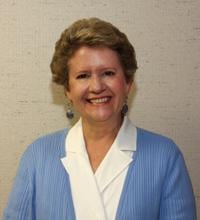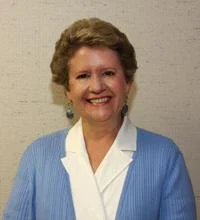The Growing Challenges Teachers Face
- By Diana Hadley, Special to TheStatehouseFile.com
My husband just completed 51 years as a science educator at the middle school and college levels. That number plus my 47 years as a high school and college journalism/language arts teacher totals almost 100 years in education as a couple.
 Photo Of Diana Hadley
Photo Of Diana HadleyOur transitions from teaching to other chapters are bittersweet. Sure, there were challenging times, but the overall experience was positive, and we will miss it. We have great memories working with our colleagues, our students and their parents, and we have stayed in contact with many of them years after they were part of our professional lives.
We are pleased when our students become teachers but troubled that their circumstances don’t provide the satisfaction we experienced. It is important to understand why many are leaving the profession sometimes just a couple of years from when they entered it. What is different?
Some describe the challenges the pandemic created when they had to provide classes through technology rather than in person. Watching my grandson’s kindergarten teacher keep a classroom of five-year-olds on task for hours each day through Zoom was amazing. She did it, but it could not have been as rewarding for her or the children as interacting in person.
Since the pandemic, teachers worry about their students’ mental wellness and lack of interpersonal skills.
In addition, attacks on education have made teachers feel they are not respected for what they do. More and more they fear that the curriculum they develop may be challenged and they may lose their jobs over the standards-based lessons they teach.
The fact that teacher salaries and benefits are not keeping up with professionals in other areas also leads them to consider other career options.
Competition between public, charter, and private schools that some claim creates better schools —though much research shows this is not the case—results in funding and accountability concerns that can create more inequality rather than eliminate it.
Professional days for teachers and field trips that inspire students are limited today. I had students consider colleges they visited and careers they saw in person thanks to field trips.
High-stakes testing provides stress and questionable benefits as more engaging lessons are scrapped to prepare for tests. My husband’s Galileo Day, a lesson during which students donated items such as watermelons and old bowling balls to drop from the roof of the school, may not have helped prepare for a standardized test, but the activity helped students understand a science lesson with enjoyable, experience-based memories.
The recent book bans may be the last straw for many teachers as they remove high-interest selections from their shelves and limit the world students can explore. Only one parent challenged a book during my 33 years at the high school level, and my yearbook, newspaper, and broadcast students reported about topics that interested them without fear of censorship as long as their coverage was accurate, responsible, and fair.
My grandmother was a teacher in a small rural school in the early 1900s. She had 44 first and second-graders in her class one year. There were few resources, but she was trusted to create lesson plans based on her expertise that would help students learn without government oversight and high-stakes testing.
Talking about the old days isn’t usually the best direction forward, but today’s teachers and students would appreciate the old days of academic freedom and the joy of learning together.
Over the past two decades, legislators who have a super majority of power but little or no experience in education have made education policy decisions that have caused the negative results above.
Many teachers have lobbied for educational issues at the Statehouse where few teachers serve as legislators. We have had requests for meetings ignored. We have met people who traveled to testify only to be told to there isn’t time to hear them. We have seen amendments added at the last minute that destroys a good bill. And we have worked for a bill for months only to see it sabotaged the last week of the session as we scan the tally sheet of legislators who had indicated their support for it.
The process can be heartbreaking.
However, as my husband and I leave the classroom and retire our red pens and lab coats, we will continue to visit the Statehouse to try to influence legislation that supports teachers and students.
Please join us.
It won’t be nearly as much fun as teaching—but every bit as important.





